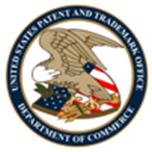As reported by the American Intellectual Property Law Association, in a severely splintered decision, the en banc Federal Circuit was unable to agree on a rationale for analyzing the abstract idea exception to patent eligibility for computer implemented method claims, computer-readable media, and system claims. CLS Bank International v. Alice Corp., en banc Fed. Cir., No. 11-1301, 5/10/13.
Instead, the court issued a 58-word per curiam opinion for the Court, affirming by a majority vote the patent ineligibility of method and computer-readable media claims are ineligible, and affirming by a 5-5 tie vote the patent ineligibility system claims. Six separate opinions (totaling 127 pages) were issued by judges stating their agreement or disagreement with the result in the appeal.
The challenged patents in this case are directed to a computerized trading platform for exchanging obligations in which a trusted third party settles obligations between a first and second party so as to eliminate “settlement risk.” Seven Judges (Chief Judge Rader and Judges Lourie, Dyk, Prose, Reyna, Wallach, and Moore) voted to affirm the decision that the method and media claims were ineligible were. As to the system claims, those who would find ineligibility were Judges Lourie, Dyk, Prost, Renya, and Wallach; those who would find eligibility were Chief Judge Rader and Judges Newman, Linn, O’Malley, and Moore.
Judge Lourie’s Opinion
In its en banc order for this case, the Court posed two questions for briefing: (1) what test should the court adopt for determining if a computer-implemented invention is patent ineligible “abstract ideal,” and when does a computer lend patent eligibility to an otherwise ineligible idea; and (2) should it matter whether the invention is claimed as a method, system, or storage medium, and should such claims be considered equivalent for purposes of Section 101.
Judge Lourie filed a concurring opinion joined by Judges Dyk, Prost, Renya, and Wallach. He wrote that the Supreme Court in Section 101 cases has cautioned against the preemption of fundamental tools of science, against the use of formalistic approaches that permit drafting strategies to circumvent Section 101 exclusions, and against bright-line rules that do not accommodate changing technology. His opinion makes the following points:
Preemption: The Section 101 concern is not preemption per se since any patent inherently includes some preemption in the right to exclude. “Rather, the animating concern is that claims should not be coextensive with a natural law, natural phenomenon, or abstract idea; a patent-eligible claim must include one or more substantive limitations that, in the words of the Supreme Court, add ‘significantly more’ to the basic principle, with the result that the claim covers significantly less.”
Inventive concept: The Supreme Court’s reference to an “inventive concept” requirement under Section 101 is not a reference to “inventiveness” for patentability. Instead, it is the “genuine human contribution to the claimed subject matter” and must be “a product of human ingenuity.” Nor should the Court’s use of terms such as “routine” or “conventional” in discussing patent ineligibility be confused with the novelty and nonobviousness. The question, is whether steps combined with a natural law or abstract idea are so insignificant that the claim effectively covers the natural law or abstract idea itself.
Threshold requirement and presumption of validity: It is incorrect to argue that patent eligibility under Section 101 is a “threshold test” that must always be considered first among all of the possible bases for finding invalidity. District courts are entrusted with great discretion to control their dockets, including the order of issues presented during litigation. In addition, the presumption of validity under 35 U.S.C. 282 applies when Section 101 patent ineligibility is raised as an invalidity challenge.
Method claims: The method claims in this case involve the concept of reducing settlement risk by facilitating a trade through third-party intermediation, an abstract idea that is not patent eligible standing alone. Limitations of keeping and maintaining shadow records do not add “anything of substance to the claims.” The requirement for computer implementation is not specific enough and lacks express language defining the computer’s participation. “Furthermore, simply appending generic computer functionality to lend speed or efficiency to the performance of an otherwise abstract concept does not meaningfully limit claim scope for purposes of patent eligibility.”
Computer-readable medium claims: Although the computer readable storage medium claims recite a physical device, the patent eligibility analysis must look past drafting formalities and focus on the “true substance of the claims.” The claim term is stated in broadly and every substantive limitation pertains to the method steps of the program code embodied in the medium. Thus, the claim is not truly drawn to the medium but rather to the underlying method. Despite the Beauregard format, these claims are equivalent to the methods they recite for patent eligibility purposes.
System claims: These claims recite a computerized system to carry out steps that mirror the method claims of maintaining, controlling, and adjusting shadow records. The computer-based limitations recited in the system claims cannot support any meaningful distinction from the computer-based limitations that failed to supply an “inventive concept” to the related method claims. Applying a different approach for system claims than for method claims “would reward precisely the type of clever claim drafting that the Supreme Court has repeatedly instructed us to ignore.”
We are not here faced with a computer per se. Such are surely patent-eligible machines. We are faced with abstract methods coupled with computers adapted to perform those methods. And that is the fallacy of relying on Alappat, as the concurrence in part does. Not only has the world of technology changed, but the legal world has changed. The Supreme Court has spoken since Alappat on the question of patent eligibility, and we must take note of that change. Abstract methods do not become patent-eligible machines by being clothed in computer language.
Chief Judge Rader’s Opinion
Chief Judge Rader filed a concurring-in-part, dissenting-in-part opinion, joined by Judges Linn, Moore, and O’Malley. He stated that the asserted system claims were wrongly ruled ineligible. However, Judges Linn and O’Malley disagreed with the view of Judges Rader and Moore that method and media claims were ineligible. Judge Rader’s opinion makes the following points:
Court created subject matter exceptions: The claims are the key to the patent eligibility inquiry into the subject matter exclusions of abstract ideas, laws of nature and natural phenomena and abstract ideas. “Any claim can be stripped down, simplified, generalized, or paraphrased to remove all of its concrete limitations, until at its core, something that could be characterized as an abstract idea is revealed. * * * A court cannot go hunting for abstractions by ignoring the concrete, palpable, tangible limitations of the invention the patentee actually claims.”
Specific Claim limitations: A claim may be premised on an abstract idea, but the question is whether the claim contains limitations that meaningfully tie that idea to a concrete reality or actual application of that idea. “The key to this inquiry is whether the claims tie the otherwise abstract idea to a specific way of doing something with a computer, or a specific computer for doing something; if so, they likely will be patent eligible, unlike claims directed to nothing more than the idea of doing that thing on a computer.” As explained in Alappat, a special purpose computer, i.e., a new machine, specially designed to implement a process may be sufficient.
Inventive concept and presumption of validity: The “inventive concept” language in the Section 101 inquiry should not be read to conflate patent eligibility principles with validity principles, or to insert an “inventiveness” or “ingenuity” factor into the inquiry. The term is a shorthand for asking whether the recited steps of the claim are inherently required to implement the abstract idea. In footnote 5, Judge Rader complains that Judge Lourie’s interpretation of “inventive concept” as the “genuine human contribution” incorrectly injects “ingenuity” into the analysis. The presumption of validity that applies to other validity challenges also applies to patent eligibility challenges under Section 101, which require proof by clear and convincing evidence.
System claims: The system claims are patent eligible. The Supreme Court has said that a useful and important clue to patent eligibility for a method claim may be where the method is tied to a machine; “it would seem that a claim embodying the machine itself, with all its structural and functional limitations, would rarely, if ever, be an abstract idea,” Judge Rader observed.
In footnote 7, Judge Rader disagreed with Judge Lourie that a computer must do something other than what a computer does before it can considered patent eligible. Everything done by a computer can be done by a human. Requiring a computer to do something that a human could not would mean that computer implementation could never product patent eligibility. “Indeed, even an increase in speed alone may be sufficient to result in a meaningful limitation.” Labeling the claimed system an abstract concept “wrenches all meaning from those words, and turns a narrow exception into one which may swallow the expansive rule (and with it much of the investment and innovation in software).”
The recited steps in the system claim are not inherent in the abstract idea of using an escrow, which can be done without a data processing system that includes a data storage unit coupled to a computer which has been modified by software to receive transactions adjust records, and generate electronic instructions according to specific structural limitations in both software and hardware formats.
Method claims: Writing only for himself and Judge Moore, Judge Rader observed that method claim describes the general and theoretical concept of using a neutral intermediary in exchange transactions to reduce risk that one party will honor the deal, i.e., an escrow arrangement. The question then is whether the recited steps are inherent in an escrow and claimed at a high level of generality, such that in fact the claim is not to a practical application of the concept of an escrow, but in effect claims the abstract concept of an escrow. Judge Rader concluded that each step of the method merely recites a general step inherent within the concept of an escrow, using a third party intermediary in this fashion. While the claim limits use of an escrow to the context of this particular field, that attempted limitation is not enough.
In a separate opinion entitled “Additional Reflections,” Judge Rader noted “when all else fails, consult the statute.”
Continue reading
 After Final Consideration Pilot 2.0 (AFCP 2.0) on May 19, 2013. Designed to be more efficient and effective than the AFCP, AFCP 2.0 is part of the USPTO’s on-going efforts towards compact prosecution and increased collaboration between examiners and stakeholders.
After Final Consideration Pilot 2.0 (AFCP 2.0) on May 19, 2013. Designed to be more efficient and effective than the AFCP, AFCP 2.0 is part of the USPTO’s on-going efforts towards compact prosecution and increased collaboration between examiners and stakeholders.






